Three things have inspired my post this week. Firstly Wendy Varley wrote about her own - and her parents’ - experiences of amateur dramatics; you can read it here (and if you don't already subscribe to Wendy's World then I highly recommend that you do).
Secondly, Kāren Barnes, ex-editor of delicious magazine and curator of Scribehound Food, wrote about her childhood dream of being a cellist, inspired by watching Jacqueline du Pré at a young age, and how she eventually pivoted from performance to food journalism. It’s a really profound and emotional piece of writing, and she provided an audio version which is even more emotive - again, you can read or listen to it on the link below.
Thirdly, an old friend messaged me this week to let me know that a photo of me, in a 1988 joint school production, was currently on the Wall of Fame at the boys’ school that my brother had attended.
All of these things got me thinking about my experiences of “am dram” and school productions.
Like Wendy, I was born into an extended family of performers. Aunts, uncles and cousins trod (and in many cases continue to tread) the boards in musical theatre companies across Surrey and Sussex. My father was an enthusiastic amateur stage technician. My maternal grandmother ran children’s theatre groups. My aunts and uncle played many leading roles in Gilbert and Sullivan operettas and musicals over decades. In fact, the only person who actively disliked performing was my mother, perpetually happy being the prompt at the side of the stage and providing the buffet for after show parties.
I loved imaginary games as a child, and vividly remember being aged about four, “performing” Cinderella in my granny’s rooms, where she kept the wardrobe for her theatre group, with three different changes of costume for the three different balls (yes, there were three - I think my childhood version was the Andrew Lang Blue Fairy Book).
At middle school I played the Mouse, a small but pivotal role in The Land of Green Ginger, a play adapted by my teacher Mr James from the children's novel by Noel Langley.
At my all-girl secondary school, opportunities for theatrical performance did not come along every day, but I did write my own short plays (including one called Hippolyta’s Belt, a play script in rhyming couplets about the labours of Hercules - pretentious, moi?) which I could occasionally prevail upon my friends in my tutor group to rehearse with me.
But in my final year, the opportunity arose to audition for a musical which would be put on collaboratively with the local boys' school. This was Sandy Wilson's The Boyfriend, a slightly obscure but utterly joyous musical set in a 1920s French resort.
I had been in school choirs for years and sang in my local church choir, but I had never had a solo before. Short, plump and not in any way an ingenue, I set my heart, not on the female lead, Polly, or any of her friends, but on the main “character part”, Mme Dubonnet, who gets to sing duets with several of the characters, including “Poor Little Pierrette”, one of my favourite songs from the musical.
I auditioned, full of hope, and when the cast list went up, I found that I had been cast in the show - but as one of the smallest parts, Lady Brockhurst. A tiny character part, with no solos. My friend Rachael had been cast as Mme Dubonnet.
I was devastated. It really stung, and it was hard to feel happy for my friend. But as the rehearsal process started, I turned it around. I resolved that I was going to make my character memorable, whether or not I got to sing a solo.
I tell my classes this story now, whenever it's time for them to audition for school productions. “It doesn't matter whether you get a big or small part,” I say, “Any one of you could be the person that everybody leaves the show talking about, because you will be memorable onstage. And if you throw yourself into the process, you will have fun, too.”
It was - great fun. I have so many memories of that time. Learning the chorus numbers. The teachers’ consternation when the leading man’s voice broke between auditions and rehearsals, meaning he had to speak-sing all his numbers like some miniature Rex Harrison. My mother making my costume (a drop-waisted green silk dress) and one of the teachers lending me her corset (!) to wear underneath it.
And when we performed, it went down a storm. The production was reviewed in the local paper, the Worthing Herald (do local papers still do this for school productions?) and when it was published, I had a paragraph to myself! I can't find the original cutting, but it doesn't matter as the words are seared on my heart:
“But one of the largest rounds of applause went to one of the smallest roles. Fiona Van Ryne was hilarious in her brief bursts on stage as the indomitable Lady Brockhurst.”
You can see me here as literally “one of the smallest roles” - at 4ft 11 3/4, I was the shortest person on stage.
I had a massive and completely unrequited crush on Daniel (in the flat cap here), so I was absolutely delighted when the following year, I was asked to take part in another joint school production, Gilbert and Sullivan’s HMS Pinafore, where he would be playing the male lead, Ralph Rackstraw.
In this shot I’m sitting on the knee of brother’s best friend Neil, who played Captain Corcoran. By this stage, I had actually left my school and gone to Sixth Form for A levels. But my brother, two years younger, was still at the boys’s school and he and Neil both played the drums to a very high standard, so were well known to the music department, and I wonder now if my mother had a word with the teachers, knowing that, even in 1990, Gilbert and Sullivan operettas were not a standard production for schools and that I’d been brought up on them. This time, as far as I remember, I didn't even have to audition. I was just asked if I would play the role of Little Buttercup, and that was it.
I finally got my solo singing part - and another positive review in the local paper.
During the same time period, I was also attending the Worthing Youth Theatre, run by Caroline Bean and Nic Young (who also founded the professional touring company Rainbow Theatre Group). The junior group, run by Caroline, was full of fun, games and socializing; once I graduated to the senior group, under Nic, I remember being petrified by the lengthy improvisation activities where anything that did not move the acting along was met with a disapproving shout of “BLOCK!”. I remember two revues I took part in for WYT - one where I had to be a “good time girl” and sing “The Lady Is A Tramp” (the only other time I got a solo) and being told off by Nic for being “too schoolgirl and not vampish enough”. The other was performed in Chichester and involved a group of us dressed in leotards and fishnets, with Ku Klux Klan hoods, holding a burning cross and singing “Keep The Home Fires Burning” - I promise I didn't dream this!
Once I went to university to read English Literature, theatrical performances were the domain of the slightly scary Drama students with their black rollnecks and ever-present cigarettes (“I’m getting into character, dahling…”). So, although I always sang in choirs wherever I went, performing in plays was something I left behind, apart from scratched-together staff pantos every Christmas. Teaching is in itself the art of performance, of being present enough to command the attention of 32 pupils and inspire them even when the subject is not your area of expertise, and there just wasn't the time to commit to an amateur dramatics group.
But then, a couple of years ago, a good friend and ex-colleague asked me if I would take part in a musical which her son had written in order to process his negative experiences of lockdown. The musical, The Happily Ever After Twist, is about a teen who goes to therapy after being unable to get out of an emotional slump after lockdown ends, and meets a group of fairytale characters who are also in therapy because their stories haven't led to a happy ending either.
My part, which my friend said was “perfect, almost written for you” was the therapist, The Fairy Godmother. And it involved several solos.
I wasn't sure to start with. It had been so long since I had been on stage - was I brave enough? Was I good enough? Could I even spare the time? But, knowing how much it meant to my friend's son, I agreed.
The Happily Ever After Twist was performed last summer. The group of people involved are some of the most talented, funny, generous-spirited humans I have ever had the privilege of meeting. Several people in the audience commented on how emotionally moved they were, and how watching it helped them to process their own feelings of lockdown or loss or emotional turmoil. It did get a review (here), I didn't get a mention, and it didn't matter. The satisfying, complex process of rehearsal and the joy of performance was more than enough.







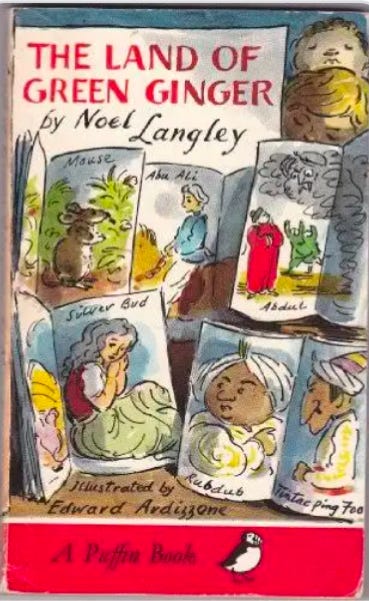
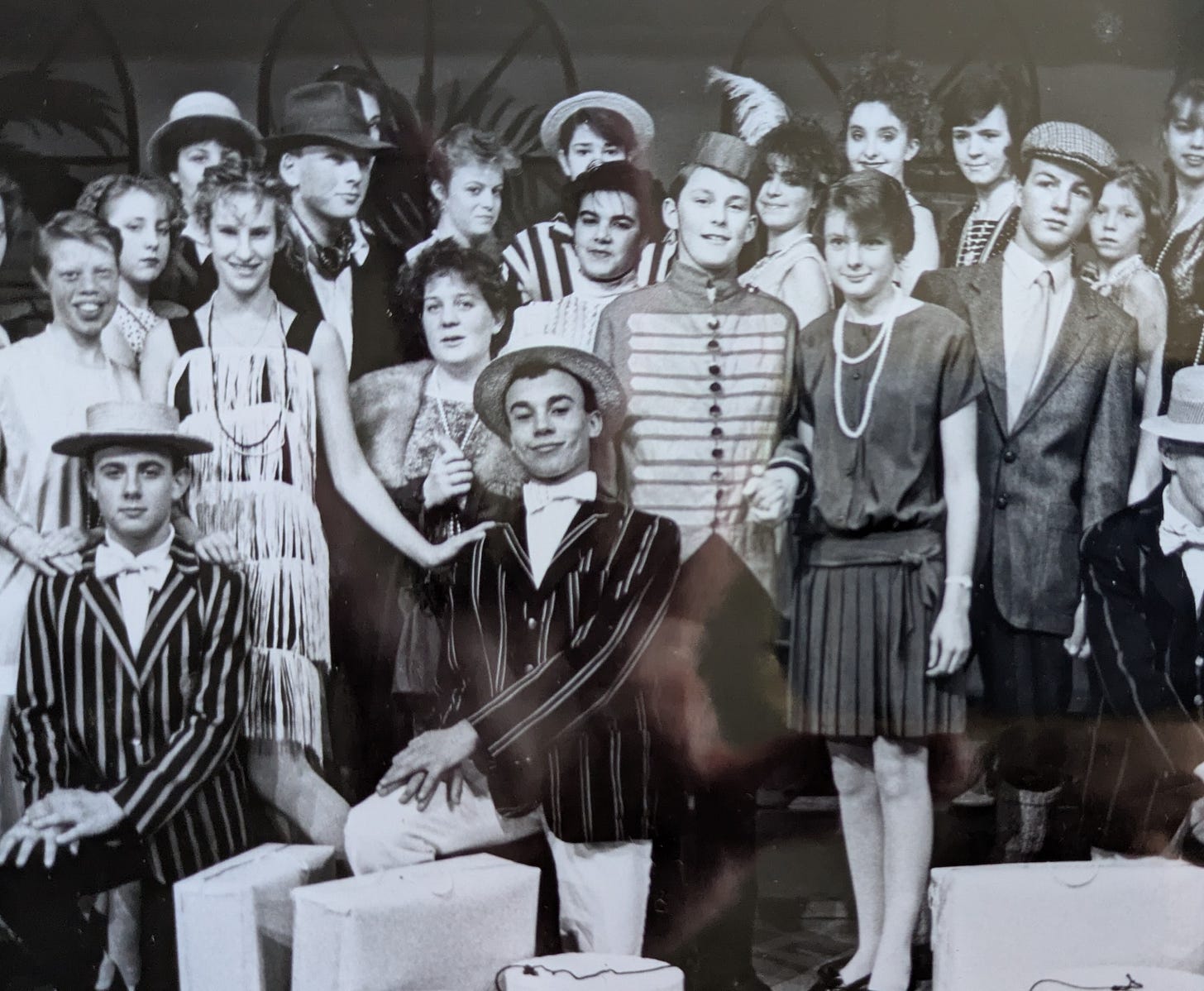
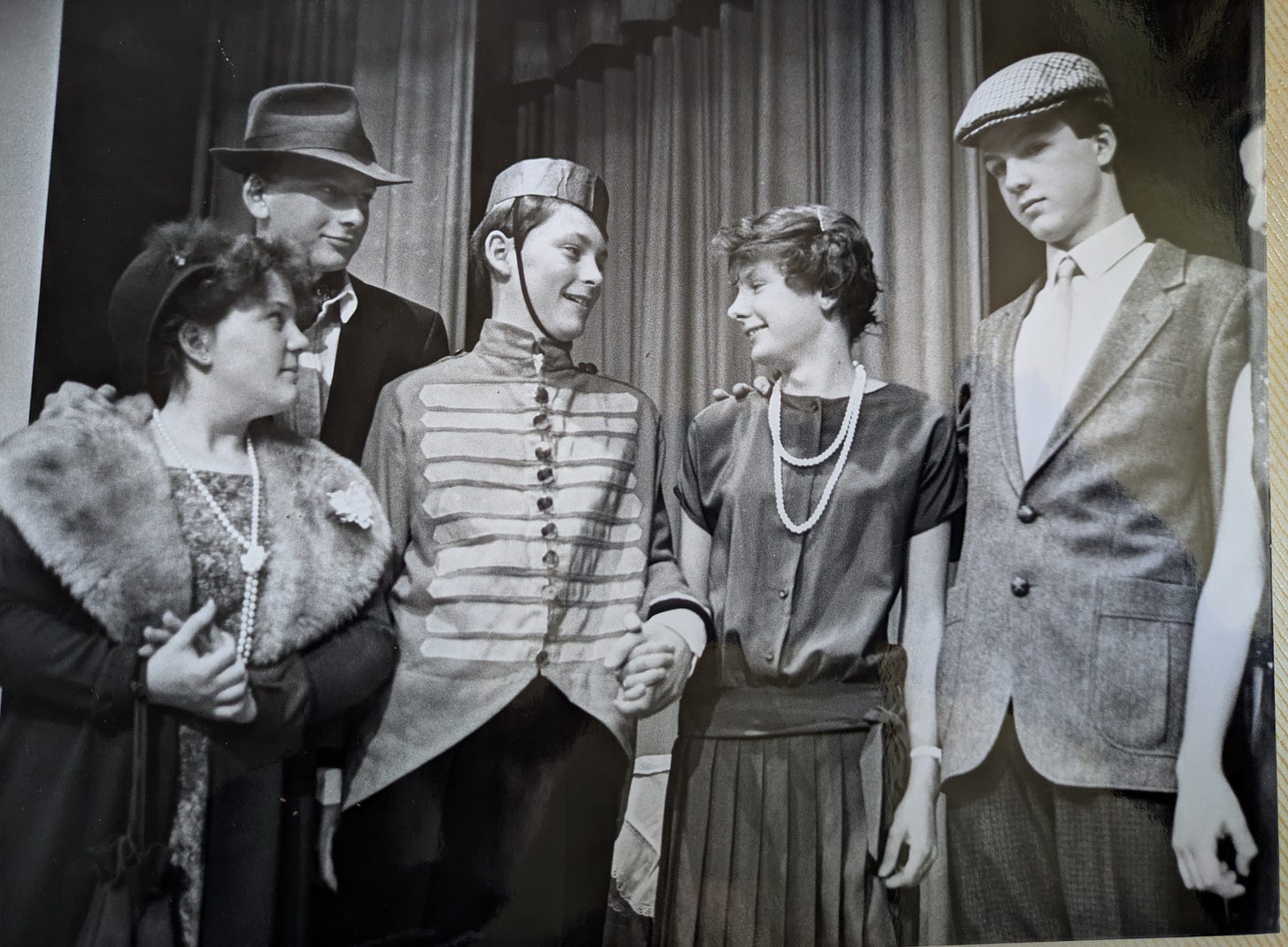
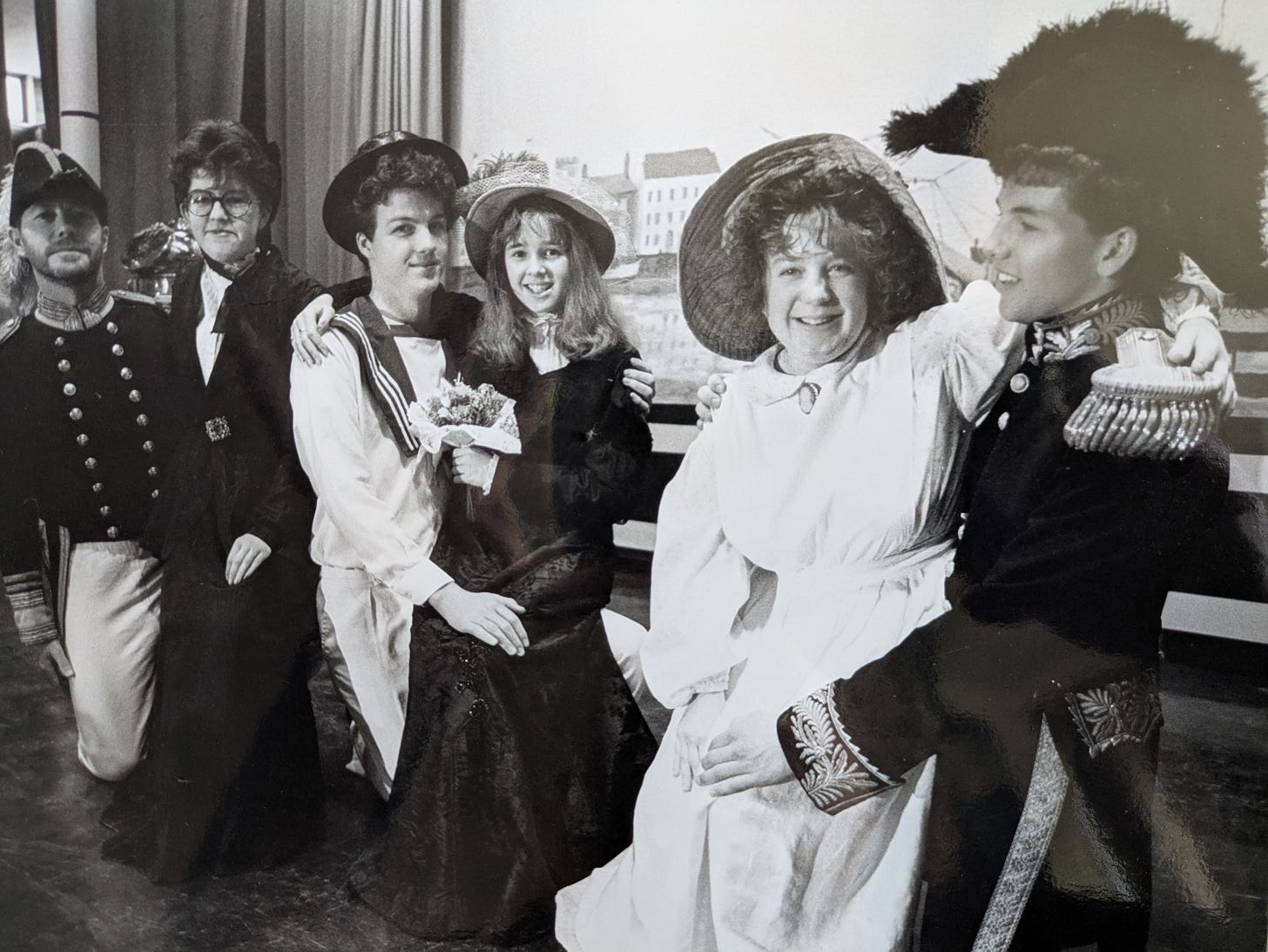
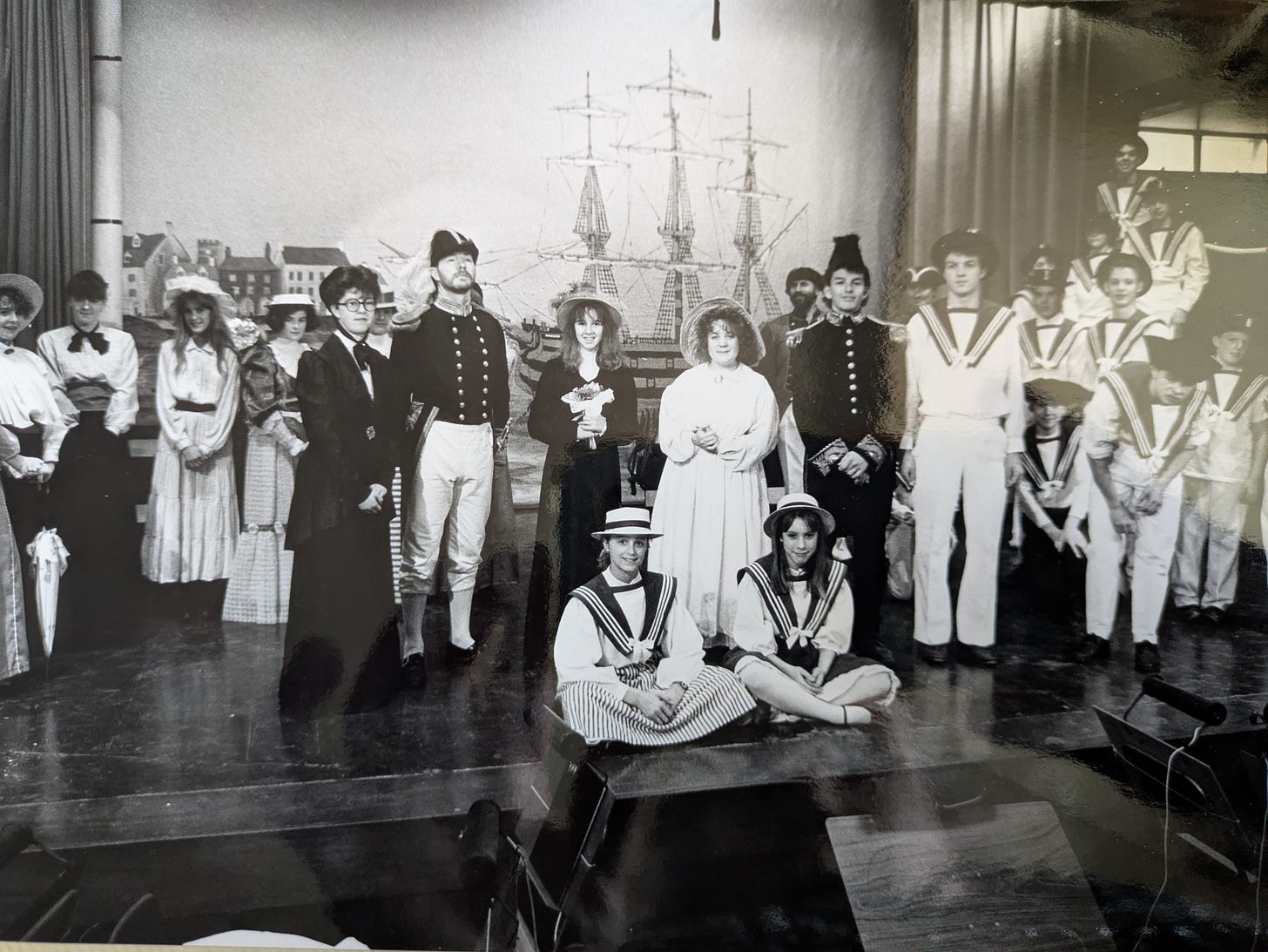

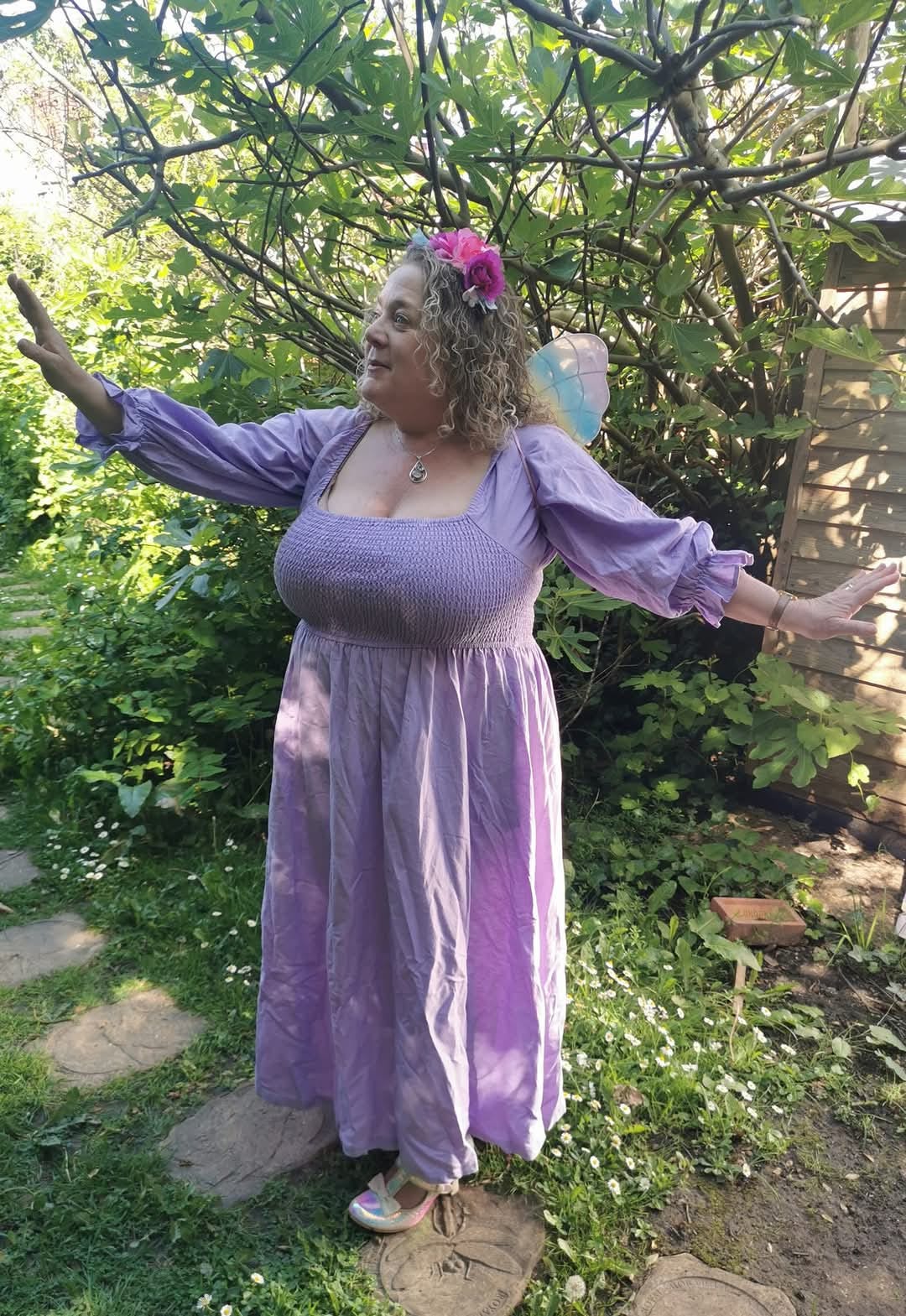
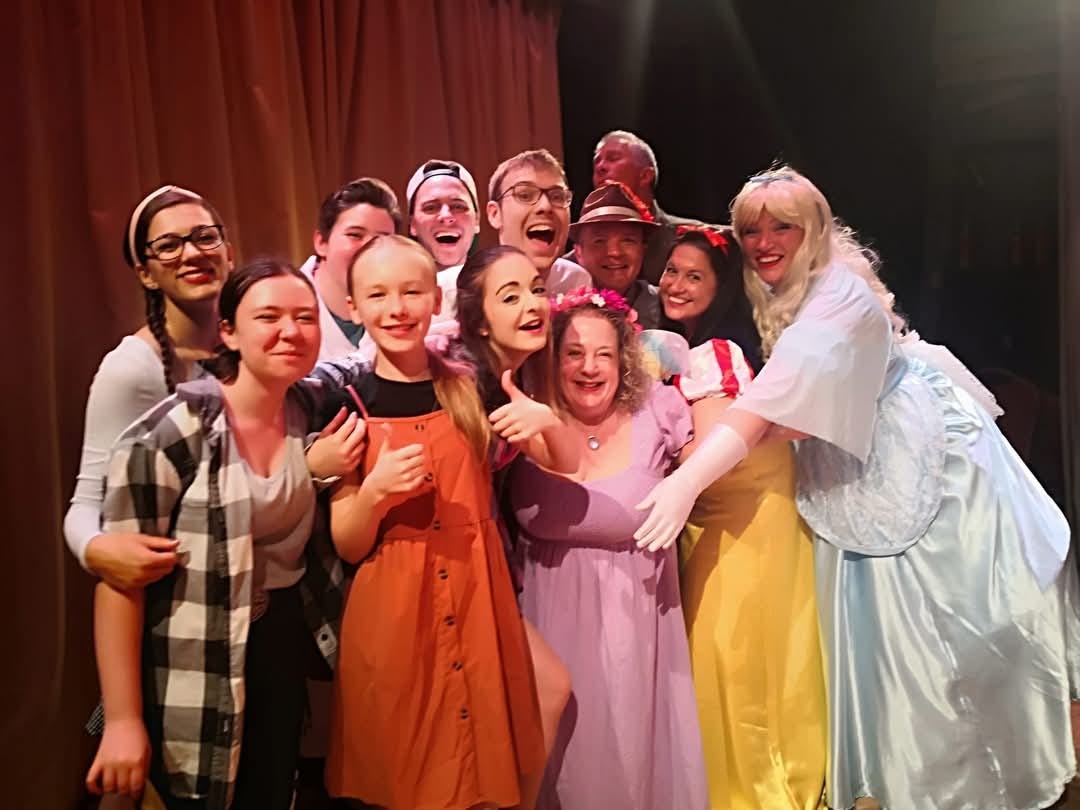
Love your early theatre memories, Fiona. Brilliant to know you’ve stepped back on stage recently and that you’re in your old school’s hall of fame!
Glad to have provided a prompt! Thanks so much for the shout out and recommendation.